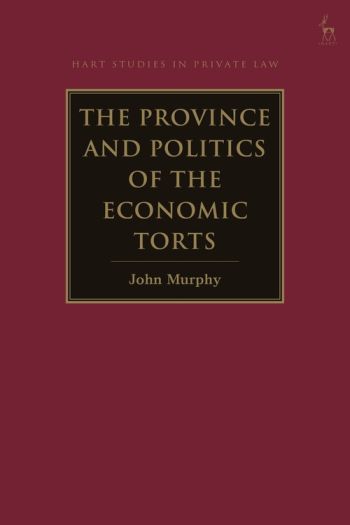
Economic torts play a key role in the development of private law more generally. Indeed, the landmark case of OBG v Allan (2008) provided one of the most important decisions in the whole of the law of torts in the last generation, as the House of Lords sought to bring order to an area of the law that has long been beset by doctrinal and theoretical puzzles. Probably the most enduring question of all in this area is whether the economic torts can be unified. This book argues that the search for unity is a will o' the wisp. More particularly, it shows that although some juridical connections exist between some of these torts, there is far more that separates them than unites them. Offering a unique perspective, this is a landmark publication on the law of economic torts.